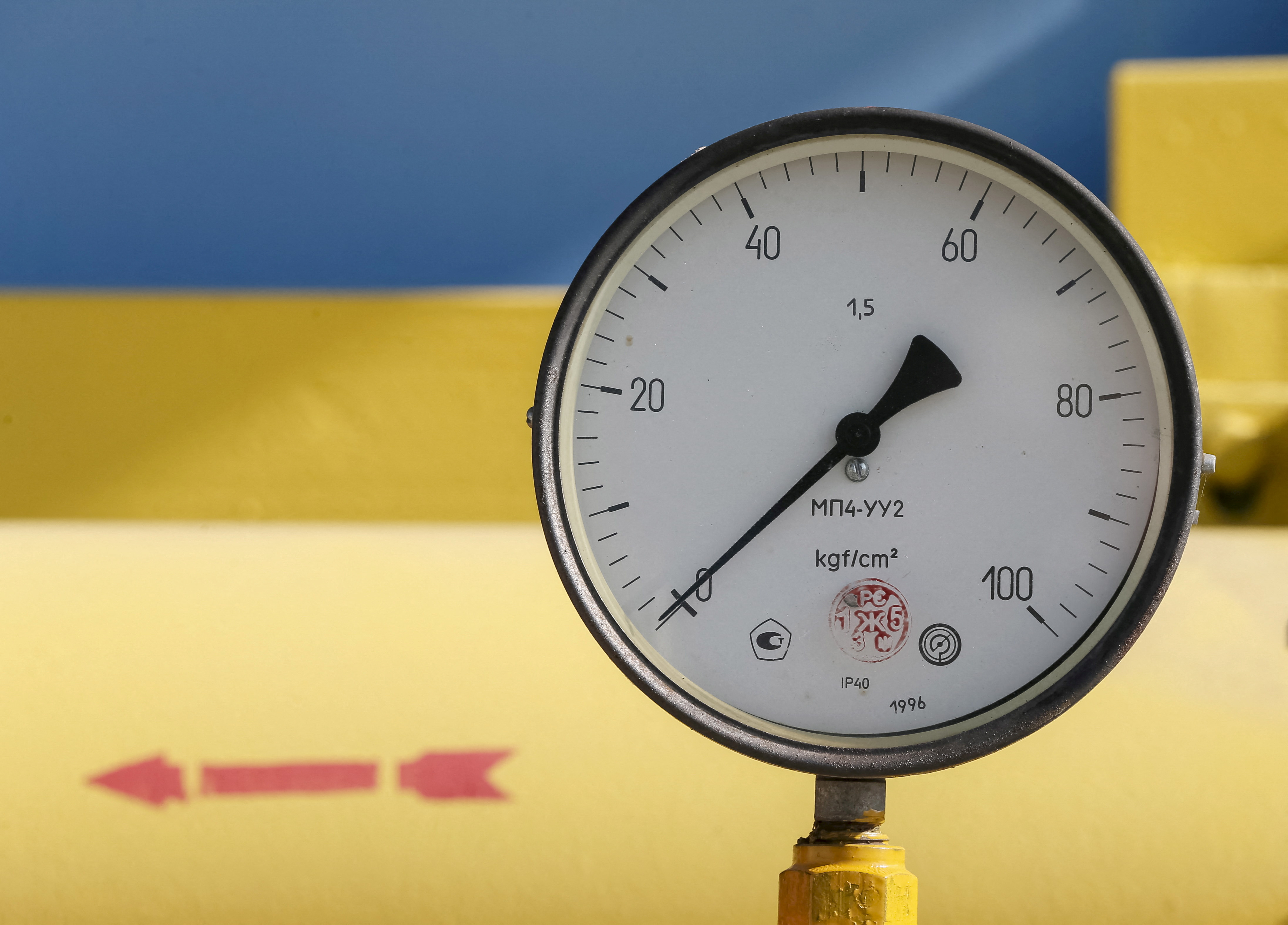EU asks countries to cut gas demand by 15% until spring
[1/5]A pressure gauge is seen at a gas compressor station and underground gas storage facility in the village of Mryn, north of Kiev, Ukraine, October 15, 2015. REUTERS/Gleb Garanich/File Photo Purchase Licensing Rights
BRUSSELS, July 20 (Reuters) - The European Union set out emergency plans on Wednesday for countries to cut their gas use by 15% until March, warning them that without deep cuts now they could struggle for fuel during winter if Russia cuts off supply.
Europe is racing to fill its gas storage ahead of winter and build a buffer in case Moscow further restricts supplies in retaliation for European support for Ukraine following Russia's invasion.
A dozen EU countries are already facing reduced Russian deliveries. EU officials say a full Russian gas halt is likely. read more
The European Commission on Wednesday proposed a voluntary target for all EU countries to cut gas use by 15% from August to March, compared with their average consumption in the same period during 2016-2021.
The proposal would enable Brussels to make the target mandatory in a supply emergency, if the EU declares a substantial risk of severe gas shortages.
The regulation needs approval from a reinforced majority of EU countries. Country diplomats are set to discuss it on Friday, with the aim of approving it at an emergency meeting of their energy ministers on July 26.
"Russia is blackmailing us. Russia is using energy as a weapon. And therefore, in any event, whether it's a partial, major cut-off of Russian gas or a total cut-off of Russian gas, Europe needs to be ready," EU Commission President Ursula von der Leyen said.
The plan has faced resistance from some countries, which feel their contingency plans do not need reinforcement from the EU. Countries would be required to update their emergency gas plans by end-September to show how they will meet the EU target.
Among those opposed is Poland, which has filled its gas storage to 98% of capacity after Russia cut its supply in April. Others have less stored, such as Hungary, which is at 47% full.
But EU energy policy chief Kadri Simson said countries have reduced their combined gas demand by just 5% despite months of dwindling supplies from Russia and soaring prices, with deeper cuts urgently needed.
A 15% cut would save about 45 billion cubic metres of gas from August-March. Russia supplied 40% of the EU's gas before its invasion of Ukraine, or around 155 bcm per year, but flows have since plummeted.
The International Monetary Fund last week warned a Russian gas cut could plunge European economies into recession.
Brussels suggested measures governments can take to curb gas use, including auctions for compensation to industries that cut gas use and limits on heating and cooling temperatures in public buildings. Governments should also decide the order in which they would force industries to close in a supply emergency.
Households are classed as "protected consumers" under EU rules and would be shielded from such curbs.
Gas deliveries are due to restart through Russia's Nord Stream 1 pipeline to Germany on Thursday, after annual maintenance. Sources told Reuters that flows would likely resume, despite some governments' fears they would not, but at below full capacity. read more
Sign up here.
Reporting by Kate Abnett; Editing by David Evans and Edmund Blair
Our Standards: The Thomson Reuters Trust Principles.

